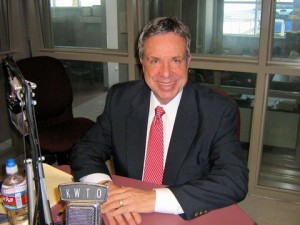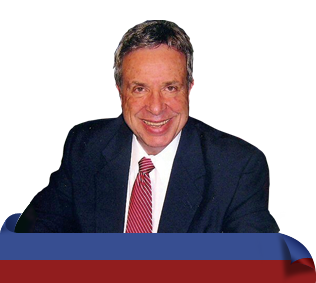Czech Immigrant
 From Emma in Myrtle Beach, who wrote the following email…..”I am sending you an inspiring story I read about an immigrant from Czechoslovakia who became a citizen”
From Emma in Myrtle Beach, who wrote the following email…..”I am sending you an inspiring story I read about an immigrant from Czechoslovakia who became a citizen”
Many hurdles await those trudging the path to legal U.S. citizenship, and thousands of immigrants – 680,000 in 2009 – successfully scale them each year.
On the weekend of the nation’s 234th birthday, more than 3,800 candidates were sworn in at 55 ceremonies, including one Friday at Middleton Place in Charleston, home of Arthur Middleton, a signer of the Declaration of Independence, according to Ana Santiago, a Department of Homeland Security spokeswoman.
Among the hurdles tackled by virtually all of those candidates was an exam designed to test their knowledge of America’s history and government.
Some, especially those born and educated here, might be tempted to think that’s no big deal. After all, applicants must answer only six of 10 questions correctly. But here’s the catch: They don’t know which 10 of the 100 possible topics in the study booklet will appear on the exam. Plus, it’s administered orally, which means you must answer the examiner directly.
For Jan Dobr, however, it was all just an opportunity for the aspiring American to learn more about his adopted country.
“It starts with Independence Day, covers political parties, has questions about history, the first president, the Founding Fathers,” said Dobr, who took his oath as an American citizen during a Charleston ceremony in September. “I enjoyed it because I learned so much about the history. It tells you how this country really works.
“Personally, I wish there had been 1,000 questions, that means I would know much more,” said the 36-year-old, whose desire to be an American blossomed in 1994 when he came as a tourist from the Czech Republic to visit his uncle.
He said he read the study booklet several times and took notes as he did. “I tested myself, took it to work and gave it to everybody,” he said. “They questioned me. They were learning, too.”
It took Dobr almost a decade of applications to qualify to take that citizenship test. But all the paperwork and years of drives from Myrtle Beach to the regional office in Charleston were nothing compared to earning the priceless right to call himself an American citizen.
Dobr said he loved being in America so much when he visited Myrtle Beach in 1994 that he overextended his stay and wasn’t allowed to return for four years. He returned in 1998.
“I applied for a student visa so I can stay here legally,” he said last week. “I went to golf course management school at (Horry-Georgetown Technical College). I graduated in 2001 with a 3.96 GPA.”
Dobr also fell in love while going to school, and married an American woman a few months before graduating. By then his student visa was expiring so he began the application process for a green card, a critical step for citizenship eligibility. Being married to an American could have shortened his citizenship wait, but the couple divorced, he said.
By 2004, he had his green card and was eligible to apply for citizenship in five years.
“I waited until June 2009 and went to Charleston,” he said. “I told them I would like to get naturalized. They said ‘OK, fill out the application, pay the fee.’ It costs money, of course.”
He came back with his application and all the required papers a few weeks later. “They invited me for approval and said come back Sept. 8 or 9 to take the test. A week later, Sept. 17, I was sworn in as a citizen,” Dobr said.
“They had a choir, uniformed soldiers, it was really nice,” he said. The timing of the ceremony also connected him to family thousands of miles away.
“My older sister was building a squash center in the Czech Republic to European Union standards,” he said. “It took her five to eight years to build. Her grand opening was four minutes from when I was sworn in as a citizen. It was a nice feeling.”
What did he do to celebrate?
“I told everybody,” he said. “Today my life is one big celebration.”
When he returned to America in 1998, Dobr had just graduated from school, where he’d studied hotel and restaurant management, he said.
“I had just got out of school and it made sense to come here,” he said. “My uncle, he owns a restaurant and I’m supposed to know how to work in it.”
His uncle owns Martin’s Restaurant at 73rd and North Ocean Boulevard in Myrtle Beach, where he worked while also attending classes at HGTC.
Dobr learned plenty at the college, but the lesson his uncle taught him in 2002 provided a real turning point.
“He fired me,” he said.
Why?
“I wasn’t doing my job. I thought I knew everything. In everybody’s life there’s a point when everybody thinks they know everything,” Dobr said. “I was at that point that I thought I knew everything and was irreplaceable.”
He learned otherwise.
“He taught me a lesson. I’m glad he did it,” said Dobr, who spent the next four years working at a golf course.
Now he’s back at the restaurant, where his business card lists his title as “Nephew (Manager).”
“That means I do everything,” he said.
After earning his citizenship, Dobr bought himself several American flag neckties.
“I wear them all the time,” he said.
He also is a member of the Grand Strand Optimist Club and is frequently called upon to speak to groups about his experiences in becoming a citizen.
“I tell them my best life achievement is becoming a citizen of the greatest country in the world, the United States of America,” he said. “It’s just wonderful how people respond to that. … Almost everybody says, ‘A lot of people take this for granted.'”
Many members of his native-born American audiences also wonder aloud how they’d do if they were tested on their knowledge of America and its government.
“A lot of people say they couldn’t take the test,” he said.
Santiago, of Homeland Security, said applicants can try again if they don’t make it the first time. But they have to wait six months to take it again.
“I might not be able to answer all the questions now,” Dobr said, “and it’s only been a year since I took it.”
Thanks, Emma, for the great story about Mr. Dobr. It seems that people who immigrate to America have a perspective that many of us who were born here don’t have. They become such Super Patriots because they appreciate all the freedoms they enjoy in America that we tend to take for granted.
What’s more, to acquire their citizenship, they are required to study American History extensively to be able to pass the required test.
I think it would be a great idea if all natural born Americans were required to take a similar citizenship test when they reach legal age. Schools would be required to teach American History in much more detail to all students. The effect of that requirement would be a country full of Super Patriots!
How many of you could pass such a test?
